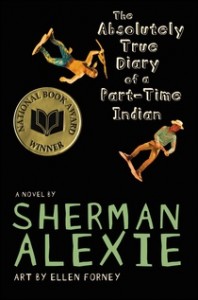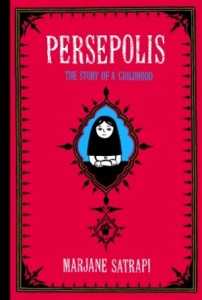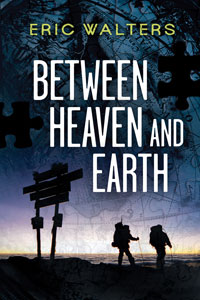In our everyday lives we are seldom shown such love, so it is understandable that few know how to give or receive it. Today’s youth, though they may not even recognize it, are driven, perhaps more urgently than ever before to search for unconditional love.
—Gretchen Klee, “Unconditional Love as a Critical Moral Ideal”
Young adults face the fear of rejection and judgment on a daily basis, all the while hoping for acceptance and the chance to stop hiding their true nature. As teens are learning more mature social skills, they are becoming aware that they may be lacking a non-judgmental source of love. Fitting in with peers at school without judgment and receiving unconditional love and support from family are unfortunately not constants in every teen’s life.
As many young adults are experiencing the drive to search for the unconditional or non-judgmental love of which they have been deprived, it is not surprising that this theme has a growing presence in young adult literature. When teens are unable to obtain such love or support from their families or peers, they are forced to look elsewhere, often within intergenerational relationships, such as those with a teacher, mentor, or grandparent. As these relationships grow, young adults are able to fulfill their desire to safely reveal their thoughts and emotions without being judged.
Literature on the Theme
The books reviewed here are representative of the theme of Unconditional Love; this is not a comprehensive list. Novels are listed alphabetically by authors’ last names.
*
 The Absolutely True Diary of a Part-Time Indian, by Sherman Alexie
The Absolutely True Diary of a Part-Time Indian, by Sherman Alexie
Little, Brown, 2007; 240 pages
Sherman Alexie’s first YA novel, The Absolutely True Diary of a Part-Time Indian, is the story of teenaged Junior, who is determined to improve his life by leaving his Spokane reservation to attend school, where he finds life difficult as the only Indian.
Throughout the novel, Junior’s grandmother, or as he calls her, Grandmother Spirit, remains a constant source of unconditional love, as she takes the time to listen to Junior, and provides advice without passing judgement. It is clear that Junior values his relationship with his grandmother, as he feels safe confiding in her about his school fight, knowing he will receive words of wisdom. At his grandmother’s wake, Junior reflects on their relationship: “my grandmother’s greatest gift was tolerance… she always approached each new person and each new experience the same way…everybody loved her; she loved everybody” (155).
*
 Forever…, by Judy Blume
Forever…, by Judy Blume
Simon Pulse, 1975; 192 pages
Forever… details a young woman’s journey of discovery as she becomes sexually active and explores emotions, activities, and responsibilities related to her sexuality.
Katherine’s grandmother becomes a source of non-judgmental love and wisdom, carefully guiding her to make safe and responsible choices. Rather than admonishing Katherine or regaling her with wild or cautionary tales, the grandmother encourages her to visit a clinic and to explore the options for birth control (AIDS and STIs were not yet a concern). She even sends Katherine a package of educational pamphlets so she has all the facts to make decisions that are right for her.
*
 Postcards from No Man’s Land, by Aidan Chambers
Postcards from No Man’s Land, by Aidan Chambers
Red Fox, 1999; 336 pages
The narrative of Postcards from No Man’s Land is divided between the present-day voice of Jacob, a young man visiting the Netherlands on behalf of his grandmother, and the memoirs of Geertrui, the elderly woman he is there to visit. Geertrui remembers the days she knew Jacob’s grandfather and namesake in his last days during the trials and tribulations of World War II.
Jacob lives with his grandmother rather than his parents and siblings, because she understands him whereas his family does not. Although not present in the action of the novel, Jacob’s references to his grandmother indicate she provides him with a warm, understanding, unbreakable love that he cannot find elsewhere. Until he meets Alma.
After some rough misadventures, including being mugged and chasing the culprit through many miles of a foreign city, Jacob drops exhausted in a doorway of a house, poor shelter from the rain. Alma, the elderly woman who lives there befriends him, a stranger, and takes care of him with great generosity before helping him on his way. Later on, Jacob returns to say thank you and ends up availing himself of her kind and generous wisdom and advice.
*
 Looking for Alaska, by John Green
Looking for Alaska, by John Green
Speak, 2007; 256 pages
This coming-of-age novel by John Green takes place during the first year that the protagonist, Miles Halter, spends at boarding school. His first friend there, Chip “The Colonel” Martin, is a scholarship student who feels alienated from the majority of the other students who come from privileged families. He, Chip, Alaska (a troubled girl), and a few other outsiders become extremely close over the course of the year until their shared guilt over a tragic event threatens to tear them apart. A striking intergenerational relationship in this book, and one that demonstrates reciprocal unconditional love, is that between Chip and his destitute mother. In one scene, Chip invites Miles and Alaska home for Thanksgiving dinner, where he is utterly unembarrassed by his uneducated mother’s humble circumstances. From this scene on, it is clear that Chip is working hard to maintain his scholarship out of love for his mother. Likewise, she is bursting with pride over him.
This relationship between a mother and son also has a positive effect on Miles, who is struck by the uncritical acceptance he sees on both sides; in particular, because Chip is so very critical of most other people. In addition, this Thanksgiving dinner offers Miles the last “normal” family gathering before things go very wrong. Perhaps Miles’s reflections on this relationship will prompt young readers to examine their own responses to those who—although they may not always fit the traditional picture of what is successful or educated—nevertheless love them unreservedly and therefore are to be prized themselves.
*
 Persepolis: The Story of a Childhood, by Marjane Satrapi
Persepolis: The Story of a Childhood, by Marjane Satrapi
Pantheon, 2003; 160 pages
Persepolis details Marji’s coming-of-age during the peak of the Islamic Revolution, and reveals the stark contrast between the public portrayal of Iranian life and the reality of the situation. The story is told through the eyes of rebellious Marji, whose experiences are exciting, tragic, and comical—from riots and revolution to secrets, torture, and death.
Marji is extremely fortunate to have a positive relationship with her parents, who are fighting to raise her with compassion and love, despite the influence of the Islamic Revolution and the war with Iraq. Uncle Anoosh and Marji’s grandmother are also sources of non-judgmental, unconditional love who both encourage and help Marji to be herself within a society of forced conformation.
*
 Between Heaven and Earth, by Eric Walters
Between Heaven and Earth, by Eric Walters
Orca Book Publishers, 2012; 245 pages
Seventeen-year-old DJ is the eldest of his deceased grandfather’s grandsons. When the will is read, the family discovers there is a seventh grandson no one else knew about, and each grandson is given a separate mission to accomplish. Eric is sent to climb Mount Kilimanjaro in Tanzania and scatter his grandfather’s ashes from the top. Starting off with full confidence, DJ soon finds that success will require all of his strength and endurance, and that he must learn to rely on others. Tricked into demanding Sarah, the teenage daughter of his guide, be hired as one of the porters, DJ finds himself isolated from the disapproving locals, not only because it is Sarah’s first time on the mountain and she has not yet proven herself, but mainly because she is a woman. DJ is left only with Sarah and Doris, an elderly woman, for traveling companions.
The grandfather loved all his grandsons unquestioningly, and customized missions for each according to strengths and weaknesses, providing each grandson opportunities for growth.
DJ’s new friend Doris also chose to love him without judgement and in spite of his weaknesses, to prod him gently when necessary, and to give him space and opportunity to grow.
*
 The Pigman, by Paul Zindel
The Pigman, by Paul Zindel
Harper & Row, 1968; 182 pages
The Pigman is written from the points of view of John and Lorraine, high school sophomores re-telling the story of their brief friendship with an old man. They befriend Mr. Pignati after calling his home as a practical joke. Surprised by his kindness and generosity towards them, and without intending harm, they find themselves taking advantage of him and possibly causing his death.
Mr. Pignati willingly befriended the two teenagers, choosing to overlook their faults and celebrate their strengths, to spend time with them, and to bring out their fun-loving sides. He gave them the chance to truly be themselves, without fear of judgement. Even when they misbehaved, and he returned from the hospital after his heart attack to find the house a party zone, he eventually forgave them.
*
Other themes: Legacy // Collective Memory // Mortality // Learning, Knowledge and Wisdom
